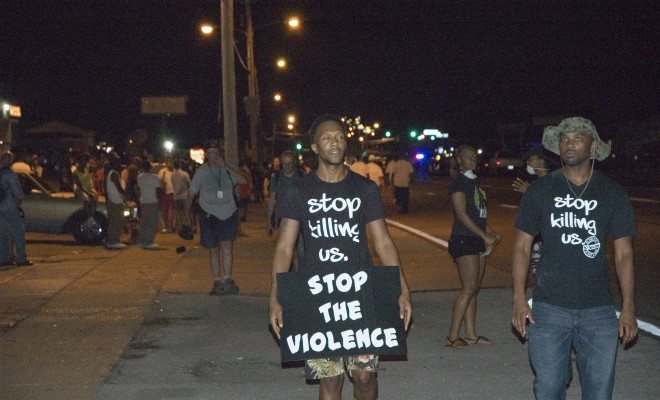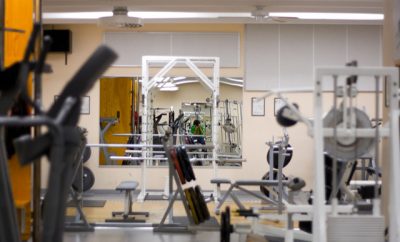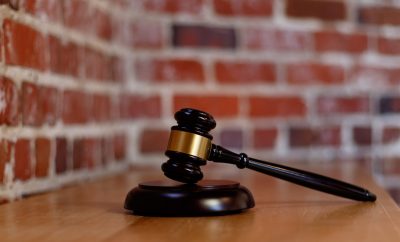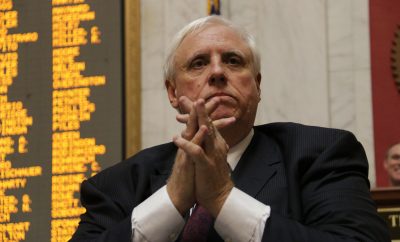 Image courtesy of [peoplesworld via Flickr]
Image courtesy of [peoplesworld via Flickr]
News
Ferguson Grand Jury’s Decision Not to Indict Wilson: Was It Right?
The entire nation is still reeling from the announcement on Monday night that Ferguson police officer Darren Wilson will not be indicted in the August 9, 2014 shooting of unarmed teenager Michael Brown. Now this has never been a simple case. Since Brown was shot, there have been protests, contentious police response to the protests, and national scrutiny. There have been conflicting statements from eyewitnesses, different forensic accounts, and I think it’s safe to say we’ll never be 100 percent sure what went down between Brown and Wilson.
People were mad when Wilson was not indicted, and understandably so. Of course, being indicted does not necessarily mean that Wilson did anything wrong. It means that the grand jury thought there was enough evidence for a jury of Wilson’s peers to decide whether or not he was guilty. They were not there to decide guilt or innocence–that’s what a jury trial itself is for. But the Ferguson grand jury did not have that evidence, so it did not make that decision.
A lot of people blamed the grand jury for not indicting Wilson, but I don’t–the jurors could only work with what was given to them. In fact, I think it’s more important to look at who gave them the evidence they would need, or lack thereof. Part of the idea of the grand jury is that it’s a testing ground for a prosecutor, but there’s also a lot of prosecutorial discretion. The prosecutor gets to present his case–what he would show in court to try to convict the defendant.
Now what prosecutor Robert McCulloch did sounded good to the untrained ear. He basically gave the grand jury all the evidence. All the conflicting reports, confusing facts, and messy evidence that has marked this case from the beginning. And he didn’t much appear to advocate for the indictment of Wilson. In fact, he seemed to emphasize the evidence that showed that Wilson was acting in self defense.
One legal analyst and trial lawyer, Lisa Bloom, argues that McCulloch basically used kid gloves with Wilson through a takedown of his presentation to the grand jury. You can read the entire thing here, and believe me, it’s a good read. But here are a couple of the most damning points she makes:
McCulloch seemed flummoxed by the novelty of conflicting evidence. In 28 years I have never had a case WITHOUT conflicting evidence.
— Lisa Bloom (@LisaBloom) November 25, 2014
Maybe we should take up a collection to teach the Ferguson prosecutors how to cross examine an adverse witness. Step 1: ask tough questions
— Lisa Bloom (@LisaBloom) November 25, 2014
An attorney who does not aggressively cross-examine the target of an investigation is an attorney who does not want to get to the truth.
— Lisa Bloom (@LisaBloom) November 25, 2014
Bloom is basically arguing that McCulloch didn’t try very hard to provide a compelling case to indict Wilson, for whatever reason. And she’s not the only one. The National Bar Association made the following statement:
The National Bar Association is questioning how the Grand Jury, considering the evidence before them, could reach the conclusion that Darren Wilson should not be indicted and tried for the shooting death of Michael Brown. National Bar Association President Pamela J. Meanes expresses her sincere disappointment with the outcome of the Grand Jury’s decision but has made it abundantly clear that the National Bar Association stands firm and will be calling on the U.S. Department of Justice to pursue federal charges against officer Darren Wilson. “We will not rest until Michael Brown and his family has justice” states Pamela Meanes, President of the National Bar Association.
Cops rarely get prosecuted for shooting civilians, and part of that is because of the way that the law is written. Police officers are usually given the benefit of the doubt, and understandably so–a police officer wouldn’t be able to do his or her job if they weren’t able to protect themselves. But when and if there’s an incident where the officer may have acted illegally, they should be held accountable. I don’t know what happened in Ferguson. I have my ideas and my opinions, but at the end of the day I simply do not know. But I can’t imagine that a trial in which it all gets sorted out could have been a bad thing. It was up to the prosecutor to make his case, and he didn’t. That’s why there’s no trial.
What happened in Ferguson on that August day is not an isolated incident. It’s difficult to find actual numbers, but we know that since August 9, 2014 14 other teenagers–or children even younger–have been shot by police. Between 1999 and 2011, African Americans have comprised 26 percent of those shot by police, despite the fact that only 13.2 percent of our population is black. Black male teens are 21 times more likely than their white counterparts to be killed by cops. Some of those shootings may be legally justified, but I can’t imagine that every single one is.
This is a conversation that our legal system needs to have.








Comments